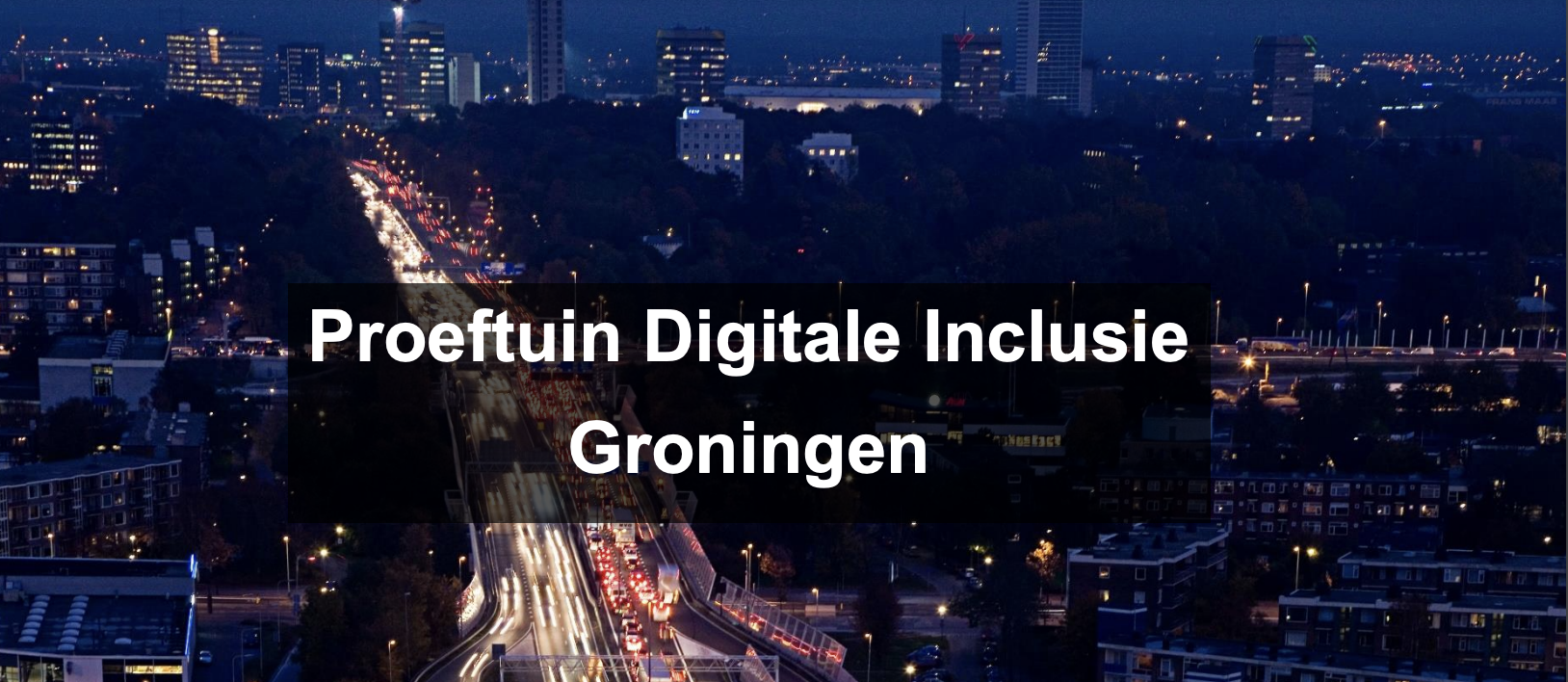This report reports on findings from the Digital Inclusion Pilot conducted in Groningen in 2019-2021. The pilot is a result of the collaboration between the University of Groningen, the municipality of Groningen, Alfa College and the Stichting Kinderopvang Stad Groningen (SKSG). These partners also work together in the Digital Literacy Coalition (www.digital-literacy.nl) in which educational and knowledge institutions, governments, business and cultural-society organizations have joined forces to increase the digital literacy of the citizens of Groningen. This allows them to participate (better) in an increasingly digitalized society.
The course of the corona crisis that erupted in March 2020 had a major impact on research. Because many planned activities required direct physical contact with people at day care, at courses and in the neighborhood, research had to be postponed and rearranged. The daycare center was closed and then was inaccessible to researchers due to restrictive measures aimed at preventing corona outbreaks. The same was true for low-literacy courses at Alfa College. Informal courses in Groningen’s Oosterpark neighborhood were canceled due to the vulnerability of both participants and volunteers. Nevertheless, interesting insights and experiences were gained during this pilot.
The first work package developed a research framework for digital literacy and inclusion. In consultation with the Ministry of the Interior and Kingdom Relations, this focused on the relatively new concept of “digital awareness.” This “underlies much of the inclusion policy” where digital government is concerned (Knops, 2020). At the same time, the concept of digital awareness has not yet been sufficiently conceptualized. This makes it difficult to design interventions or formulate policies to encourage digital awareness. In this study, we conceptualize digital awareness based on systematic literature review.
The second work package, together with the Stichting Kinderopvang Stad Groningen (SKSG), investigated the development of digital literacy within the family and in parenting. The central question is how digital literacy is established within the context of the family, school and out-of-school (BSO). The starting point here is the family context where we explore children’s media use and media behavior. We aim to provide insights and tools for the development of digital literacy and for the responsible use of digital media in the daily lives of children.
The third and fourth work packages focus on what factors promote or hinder the development of digital literacy within formal and informal education. Furthermore, we explore how digital literacy instruction in informal and formal learning environments can be better aligned. How can a continuous learning line be created so that the two forms of education reinforce each other? We do this through research on digital skills courses for low-literate people at ROC Alfa College (WP3) and informal help and courses by volunteers in Groningen’s Oosterpark neighborhood (WP4).
In this report, we present the main conclusions and recommendations for each chapter.
